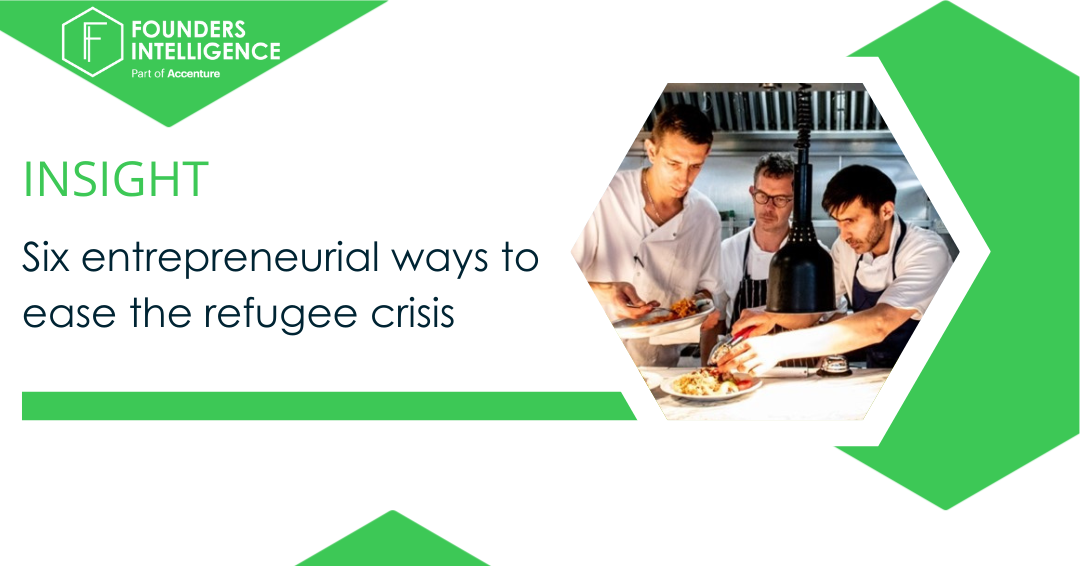Entrepreneurial Responses: What Sets Companies Apart?
By Ana Sofia Almagro, Dale Murray
While most businesses are struggling, the pandemic has also been an opportune time for businesses to be bold and experiment with new ideas. At Founders Intelligence, we have a privileged position in being able to look to investors, start-ups and corporates to understand how they are planning their responses.

Entrepreneurial Responses is a Founders Intelligence series exploring how companies are responding to the crisis and how they can consider taking action to mitigate the impacts of the downturn and emerge stronger.
In Part 1 we explore what is setting companies apart.
There are four characteristics that predict success in the current environment:
Criticality of Product / Service
Focus on what consumers and businesses absolutely need in the current environment. Not all products can be pivoted into becoming essential but quite a few creative start-ups have succeeded in pivoting to “more essential” use cases, at least for the short term.
ChargedUp, provider of free-standing phone charging stations found primarily at pubs and restaurants pivoted to CleanedUp, a series of hand sanitising dispenser snow found at pharmacies and grocers. They now account for players including Boots, Costa, and the NHS among their customers.
IP Health
Doubling-down on innovation spend in crises has been proven to be beneficial in the long term (if balanced with a drive for operational efficiencies) — think Amazon, who will spend more than they’ll earn on their massive increase in sales during this time. Indeed, most tech companies with proven business models are managing to net zero — i.e. spending almost everything they make on product, tech and R&D. Being bold pays dividends — but do it right: cut out the light-touch, going-nowhere-fast innovation theatre and really get behind some horses that, with the right backing, could — dare you think it — win.
Energia Positiva+: Several energy companies and their CVCs (including BP, Acciona, CLH) joined forces provide financial support to start-ups with projects in sustainability, mobility, social impact, digitalisation and telecom.
Digital Readiness and Culture
70% of businesses claim to have a digital transformation strategy, but most estimate their efforts have failed. Digital for digital’s sake is not the answer: rather it’s the flexibility and range of your digital capabilities; your culture’s capacity and appetite to experiment; and the digital maturity to integrate customer and data-based decision-making for tangible business outcomes. Building scalable, flexible, and responsive digital capabilities and culture remotely is possible, and necessary if we’re in this for the long haul. In this moment, we’re all more open and forgiving to experiments.
Alibaba Cloud has been able to leverage a flexible yet robust digital capability to bring to market several new use cases in the span of weeks for entirely new Life Science use cases including genome sequencing for COVID.
Flexible Customer Channels
Flexibility to quickly change how you access customers — and potentially shift customer bases entirely — is being rewarded. Adapting products to new consumer segments and markets will be a critical component of weathering a downturn: we are seeing B2B companies transform into B2C overnight (e.g. furniture companies who sold in bulk selling office chairs B2C to individual consumers), as well as B2C companies shifting to white label and enterprise models as B2B selling shifts to fully digital.
Rapidly switching passenger cabin space for cargo, United has managed to double its revenues from cargo in the past five months. In the case of American, this required building and training new machine learning models to predict routes and cargo demand.
Thank you for reading the launch of the Entrepreneurial Responses Series. In this series, we will publish additional insights, case studies, interviews, and actionable recommendations. For Part 2 on planning an entrepreneurial response go here.

Founders Intelligence is a team of entrepreneurs and strategy consultants. We help corporates understand how digitally enabled business models are affecting their industries and what to do about it.
Our team has extensive cross-category experience, working with Fannie Mae, Visa Europe, Shell, Unilever, Diageo and numerous other FTSE 100 / Fortune 500 companies.


